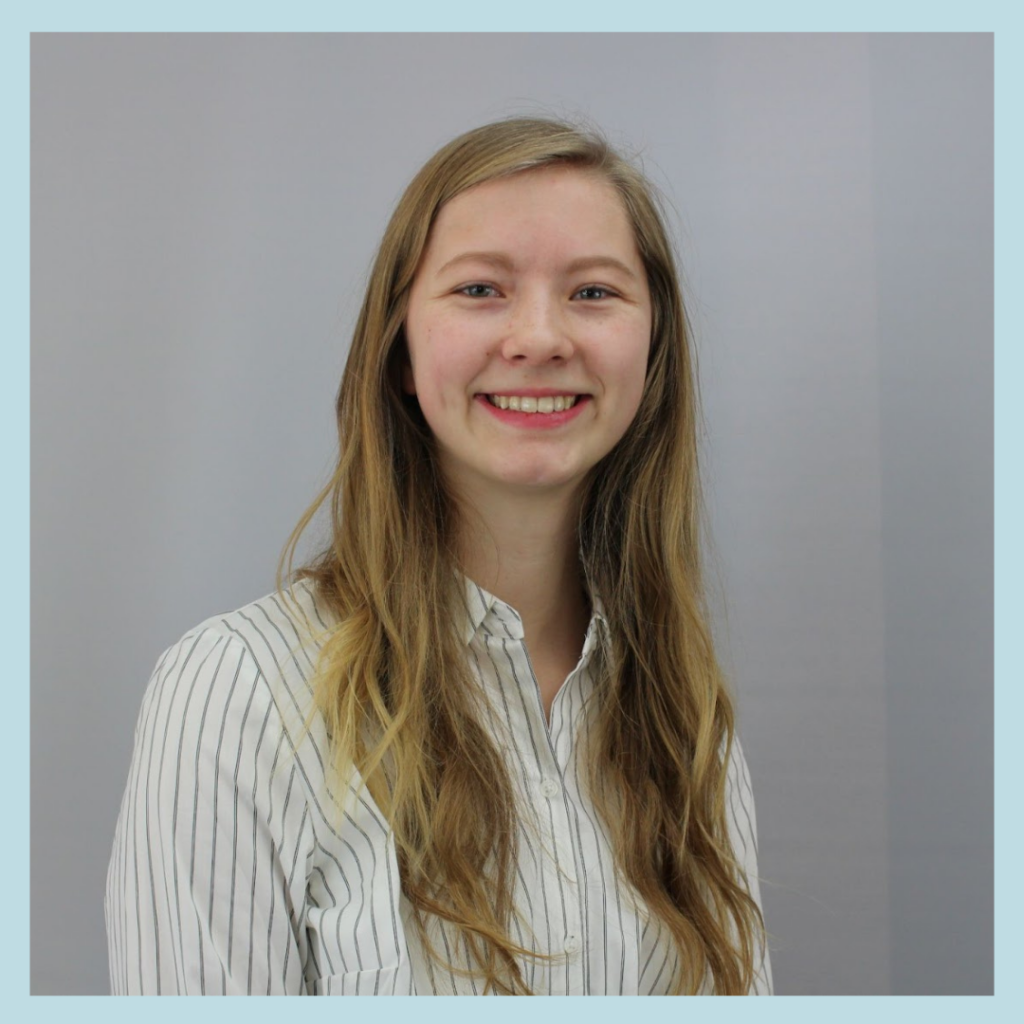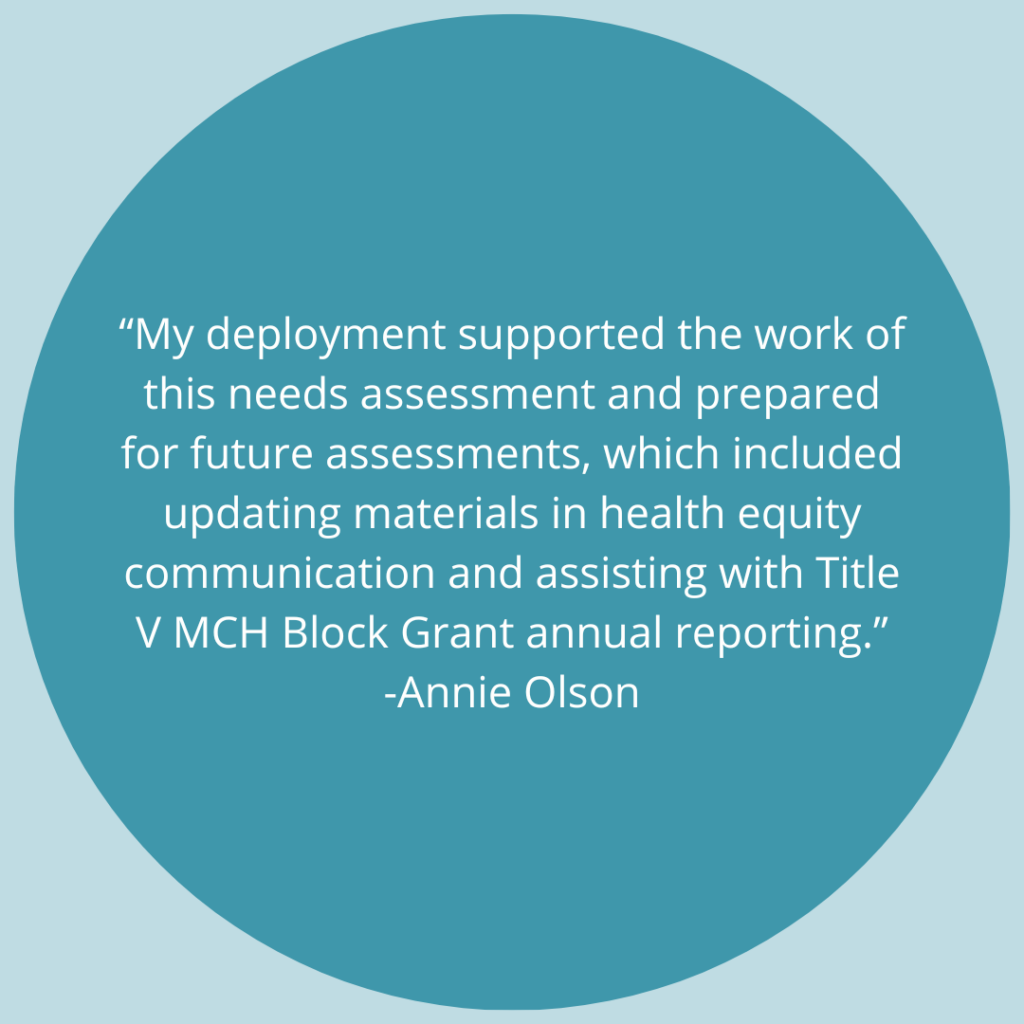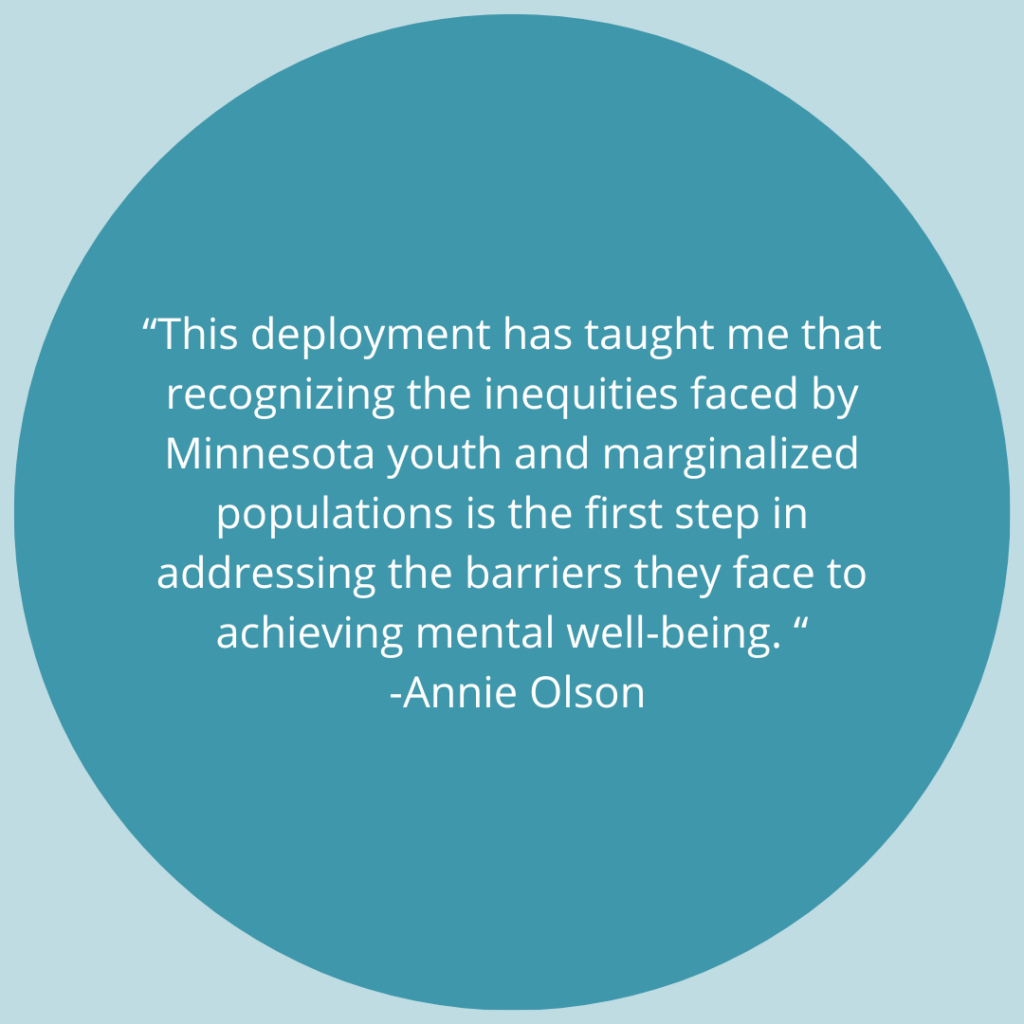#UMNMCH student Annie Olson (MPH 2024) wrote this reflection on how her deployment with the Minnesota Department of Health gave her the opportunity to analyze and disseminate information about the health of Minnesota adolescents and contributed to her understanding of mental health equity.
What was your path to the UMN MCH Program?
Before coming to the University of Minnesota School of Public Health, I graduated from Augustana University with a major in Psychology and minors in Biology and Business Administration. Throughout my time at Augustana, I realized that all my experiences were leading me toward public health, and many of my interests were encompassed in maternal and child health. Conducting research on childcare, the relationship between religion and mental health, and college students’ well-being helped me realize the complexities of public health issues and my interest in working with them. In particular, mental health among women and adolescents has always been an interest of mine. My coursework and deployment helped me explore these issues with a focus on health equity in a greater depth than I had ever imagined.
Tell us about your deployment: what did you work on, what was the goal, and did your work result in any products?
My deployment was with the Minnesota Department of Health (MDH) Division of Child and Family Health in the Director’s Office working as the Title V Maternal & Child Health (MCH) Needs Assessment Intern. The Title V MCH Needs Assessment is conducted every five years on the health of MCH populations for the Title V MCH Block Grant, which is used to identify statewide priority areas. The prior 2020 needs assessment identified mental well-being and adolescent suicide as priority areas, among several others. My deployment supported the work of this needs assessment and prepared for future assessments, which included updating materials in health equity communication and assisting with Title V MCH Block Grant annual reporting in an online database called REDCap.
I also helped analyze the results of the Minnesota Student Survey, which is administered every three years to 5th, 8th, 9th, and 11th grade students across the state and includes questions about a range of behaviors and experiences among youth, including mental health. I then created two data briefs supporting these efforts, focusing on Equity in the L.I.F.E. Framework and the MCH Leadership Competency #7 of Cultural Competency. One data brief discussed stillbirths in Minnesota from the Minnesota Resident Final Stillbirth File, and another detailed the state of adolescent mental health in Minnesota from Minnesota Student Survey data. These data briefs were created to improve the public’s awareness of stillbirths and adolescent mental health in Minnesota since these topics tend to be areas that are not widely studied. Both of the areas of research in these data briefs were desperately needed to illustrate and communicate the effects of the COVID-19 pandemic on children and adolescents as well.
How have you seen equity in your deployment?
Equity is at the forefront throughout the work done at MDH and is especially evident in the results of the Minnesota Student Survey. For the first time since the onset of the COVID-19 pandemic, the Minnesota Student Survey was conducted in 2022 and found that mental health and well-being across all demographics dramatically dropped since 2019. More specifically, youth who identify as LGBTQIA+ had much lower levels of mental well-being than non-LGBTQIA+ students. Additionally, female youth experienced notably lower mental well-being than male youth. Hawaiian or Pacific Islander and American Indian youth reported considerably poorer outcomes compared to White youth as well. Consequently, inequities in mental health and well-being are present across Minnesota youth, and the pandemic has exacerbated these concerns.
This deployment has taught me that recognizing the inequities faced by Minnesota youth and marginalized populations is the first step in addressing the barriers they face to achieving mental well-being. With the knowledge I gained during my deployment, I plan on continuing to fight for health equity among maternal and child health populations in my future as a public health professional.
BIO
Annie is a second-year MCH MPH student with a minor in health equity. Annie received her bachelor’s degree in Psychology from Augustana University in 2022. She is currently working as a Research Assistant at Hazelden Betty Ford Foundation and as a Teaching Assistant at the University of Minnesota School of Public Health. In her spare time, she enjoys reading, spending time with family and friends, and visiting Minnesota state parks with her mom. After graduating, Annie hopes to use her degree to improve the lives of women, children, and families in Minnesota and across the country.
–Read Student Spotlight archives
Interested in learning more about getting a degree in MCH? Visit our MCH Program page for more information.
#UMNMCH #UMNproud #UMNdriven


